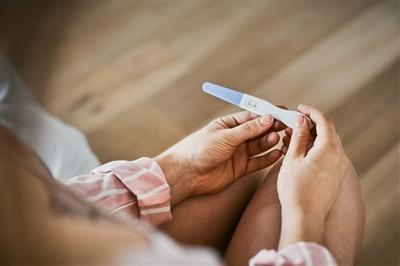Ovulation IQ: What you need to know

While we all know the general gist about how to get pregnant the reality is that, for many couples, conception isn’t always that easy. In fact, there are a lot of factors that go into successful conception—and one of them is ovulation.
If you’ve been planning to start a family for a while, you may have read or heard about ovulation. But a quick Internet search proves there’s a lot of myths and misconceptions floating around about this critical process.
What exactly is ovulation, and why is it so important for pregnancy?
Ovulation is the release of an egg from the ovary, which occurs once a month for women who have regular menstrual cycles. The egg is necessary for a woman to become pregnant. If the egg is fertilized by sperm (a process which usually happens in the Fallopian tube) early pregnancy begins. The fertilized egg travels to the uterus and implants in the uterine lining.
If the egg is not fertilized, then it disintegrates and you will shed your uterine lining with your next period.
When does ovulation occur?
It depends. Ovulation typically occurs two weeks before your period begins. Cycles are counted from the first day of menses, which is day 1, until the last day before the next period begins. It is normal to have some variation in the length of your monthly cycle, which means that the timing of ovulation can vary as well.
For example: for a woman with a regular 28-day cycle, ovulation would typically occur around day 14 of the cycle. Likewise, a woman with a 35-day cycle could expect ovulation to occur on or about day 21.
When is the fertile period?
Your fertile window is the days leading up to and just after ovulation, and this window of time can last anywhere from three to seven days depending on different factors.
Are there any symptoms that I should look for to know when I’m ovulating?
The best way to keep track of when you’re ovulating is to keep track of your cycle. However, two common signs of ovulation are a change in your basal body temperature and a change in your cervical mucous. During ovulation, you might notice a rise in basal body temperature or a change in the color or consistency of vaginal discharge.
Some women have also reported symptoms including spotting or cramping, breast tenderness, bloating, increased arousal or heightened sense of smell. Remember that symptoms will vary from woman to woman, so you may experience some or none of the symptoms of ovulation.
How long should I wait to test for pregnancy?

If you have a positive pregnancy test or a missed period, make an appointment with your OB/GYN for an in-office blood test to confirm.
Does having sex during ovulation guarantee pregnancy?
No. While your chances of getting pregnant are highest during ovulation, it does not guarantee pregnancy. If you have been trying to conceive for one year without success, make an appointment with your OB/GYN to discuss how to improve your chances of pregnancy and fertility treatment options.
If you are age 35 or older or have health issues including polycystic ovary syndrome (PCOS) or a history of irregular periods, make an appointment with your OB/GYN after six months without success.
Can you get pregnant outside of the days that you’re ovulating?
During ovulation is when you are most likely to have success getting pregnant. There is a small chance that you can get pregnant after ovulation, but your chances for getting pregnant remain the best during ovulation.
Preparing for pregnancy
If you’re planning to start a family, one of the best things you can do to improve your chances of getting pregnant is to make your health a priority. A pre-conception visit with your OB/GYN can help you determine if you need to make changes to your diet, how to manage stress and anxiety, when to go off birth control and much more. Make appointments with both your primary care physician and your obstetrician. Your clinical team can review your medical history and make additional recommendations to ensure you get the prenatal care you need.
Main Line Health serves patients at hospitals and health centers throughout the western suburbs of Philadelphia. To schedule an appointment with a specialist at Main Line Health, call 1.866.CALL.MLH (225.5654).
 Content you want, delivered to your inbox
Content you want, delivered to your inbox
Want to get the latest health and wellness articles delivered right to your inbox?
Subscribe to the Well Ahead Newsletter.
